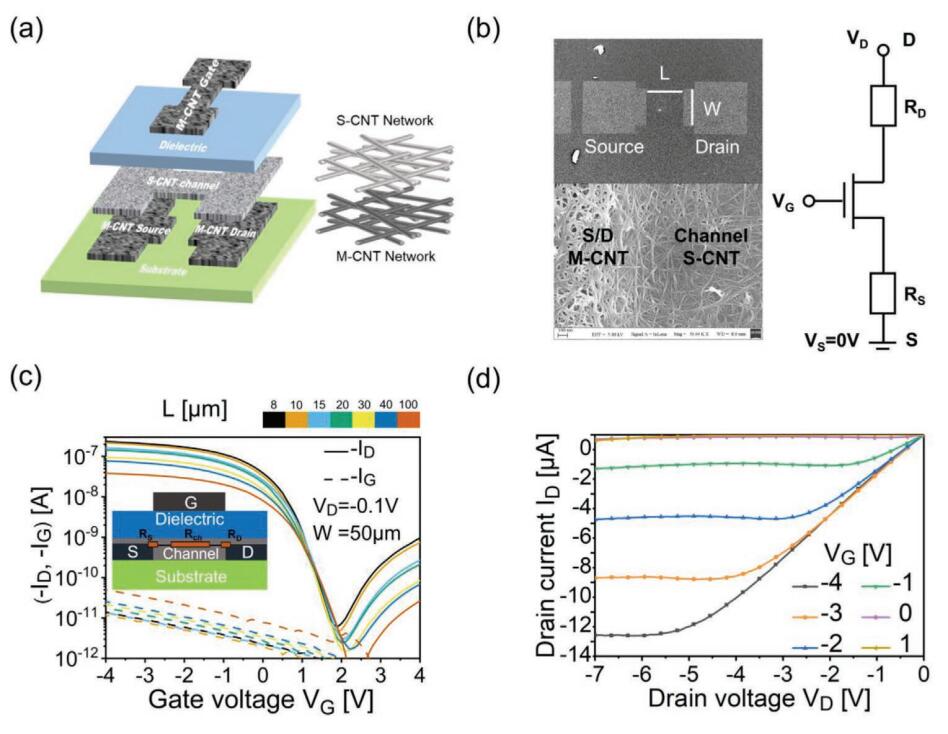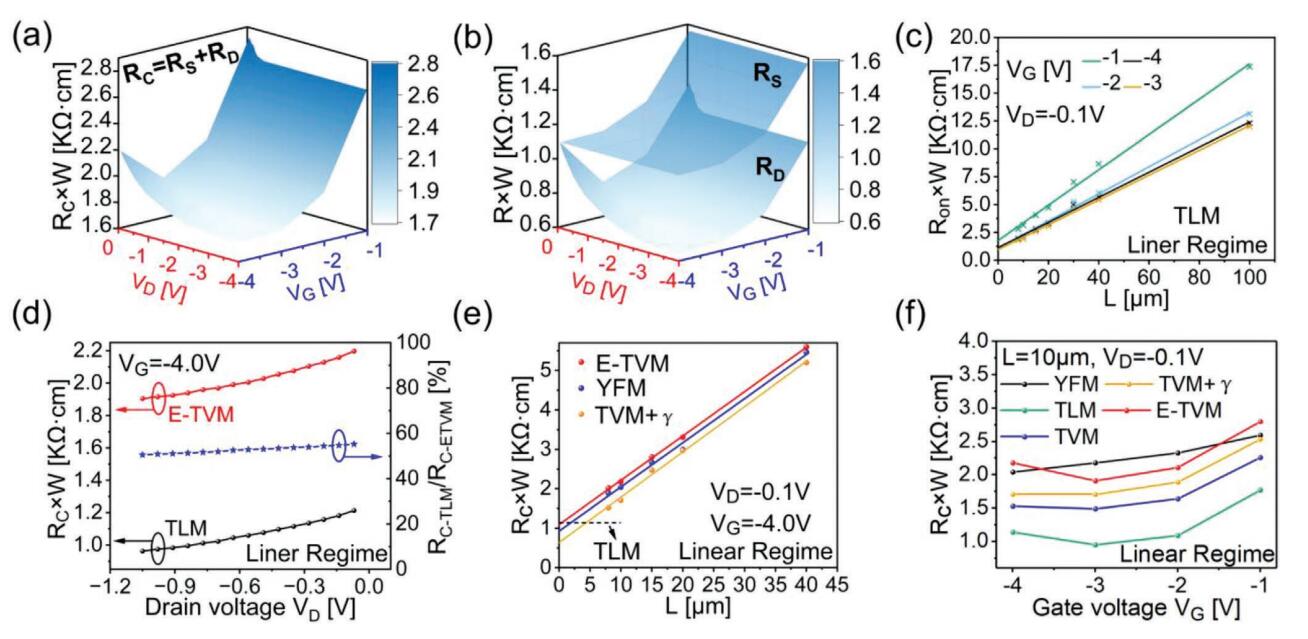Recently, Prof. Zhang Min and Liu Dexing published their research results entitled ” A Universal Method for Extracting and Quantitatively Analyzing Bias-Dependent Contact Resistance in Carbon-Nanotube Thin-Film Transistors ” on Advanced Electronic Materials (the SCI of zone 1 with IF =7.633) as the corresponding author and the first author respectively.
In recent years, driven by applications such as intelligent wearables, human-computer interaction, virtual reality and future medical technology, there has been a great demand for new flexible electronic products with excellent performance based on soft materials. The contact characteristics of these emerging flexible transistors are critical compared to traditional silicon-based field-effect transistors, but are not well understood until today due to quite complex physical processes at the metal/semiconductor interface. In this case, the contact resistance usually depends on the bias voltage as well as channel scaling, which greatly reduces the applicability of the previously reported contact resistance analysis method. Therefore, there is an urgent need for a suitable bias-dependent contact resistance extraction method to better understand the metal/semiconductor contact mechanism and to further optimize the performance of emerging transistors and circuits.
As a potential solution of flexible transistor, carbon nanotube thin film transistor provides more possibilities for further advancement of ultra-flexible electronics technology. In this work, we report a single-device method for extracting gate/drain voltage-dependent contact resistance in carbon nanotube thin film transistors. Considering that contact resistance varies with drain/grid voltage, this work extends the traditional voltage transition method to cope with Schottky contact and current crowding that is common in emerging devices. At the same time, the method can independently extract the contact resistance at the source and drain using a single device, which is not only necessary in the case of asymmetric Schottky barrier between the source and drain, but also essential for accurate circuit modeling. Using the proposed method, the dependence of contact resistance on channel scaling and bias voltage is further investigated. In addition to carbon nanotube thin film transistors, this work also demonstrates the universality of the method for extracting contact resistance from emerging transistors in metal oxide thin film transistors and advanced silicon-based field effect transistors. Compared with reported methods, the proposed method avoids complex iterations, artificial introduction of parameters, and channel scaling conditions, and can further improve the general understanding of complex metal/semiconductor contact characteristics in a variety of emerging transistors.
A single-device method is reported for extracting gate- and/or drain-voltage-dependent contact resistance of thin-film transistors (TFTs). An extended transition-voltage method is proposed and verified by experiments of all-carbon-nanotube thin-film transistors (ACNT-TFTs), which can extract gate- and/or drain-voltage-dependent contact resistance at source and drain independently. By measuring the output and transfer characteristics of a single-device and extracting the basic parameters with the aid of mature Y-function method, the contact resistance can be calculated directly. The results show that although a slight Schottky contact behavior is exhibited at very small drain voltages, good electrical contact characteristics can still be obtained in ACNT-TFTs, exhibiting quasi-Ohmic contacts. Compared with the existing single-device methods, this method is suitable for both Ohmic and Schottky contact scenarios without requiring a complex iteration process, which greatly improves the universality and efficiency of the contact resistance extraction. Besides, this method reveals the physical essence of the complex interface contacts and enables researchers to quantitatively analyze the contact performance, not only for network carbon nanotube TFTs but also for the other emerging transistors.
The article links:

